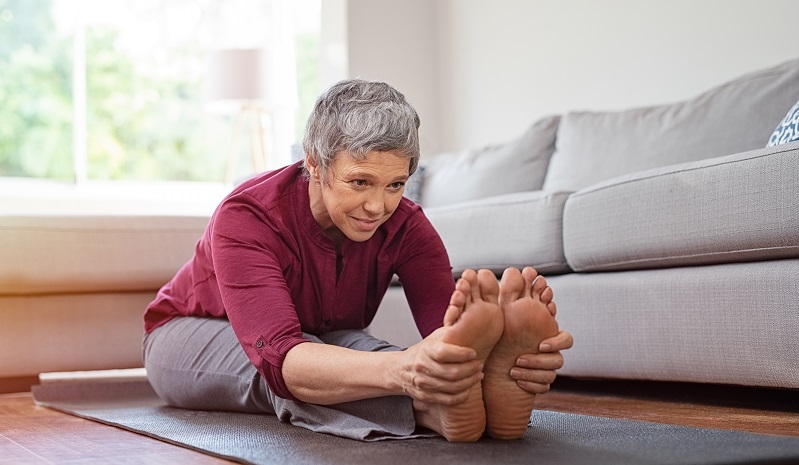5 Tips For Treating Age-Related Back Pain
Category: Back Pain | Author: Stefano Sinicropi

Time takes its toll on all of us, and unfortunately our spines oftentimes bear the brunt of Father Time. In fact, more than 90 percent of seniors have spinal disc degeneration at one or more levels of their spine. Not every case may be symptomatic, but the scars of physical activity and natural degeneration are there for most older adults.
And while we can’t slow down the aging process, we may be able to prevent and treat age-related back issues if we’re smart about how we attack the problem. In today’s blog, we talk about preventing and treating common age-related back issues.
Common Age-Related Back Problems
Your spine handles a large amount of stress during everyday activities like sitting, standing and walking, and while these actions may not feel all that stressful in the moment, over time they can really serve to wear down some key spinal structures. Some of the more common age-related spinal problems that we help treat regularly include:
- Spinal Stenosis
- Bulging Discs
- Herniated Discs
- Degenerative Disc Disease
- Facet Joint Arthritis
- Spinal Bone Spurs
- Sciatica Nerve Entrapment
- Spondylolisthesis
- Scoliosis
All of these problems can be directly caused or worsened by the aging process. Since you can’t slow time down, the best way to prevent and treat these issues is to make sure that your body is strong and healthy. If your spinal muscles are strong and provide stability to the spinal column, it’s less likely that stress will overwhelm certain areas of your back. This can help to slow any natural degenerative changes in your spine.
Back Pain Relief Tips
With that in mind, prevention and treatment strategies for age-related back problems are very similar, and they focus on developing and maintaining healthy habits. Actions that help to take pressure off your spine or improve spinal tissue strength and stability can help combat most age-related spinal problems. Common treatments used in conjunction with one another include:
- Exercise – Regular exercise is great for your spine and your whole body. If you’re already dealing with some back discomfort from natural degeneration, opt for low-impact exercise like swimming, cycling or moving on an elliptical.
- Core Strengthening – Similarly, your body draws a lot of spinal stability from your core muscles, so add some ab work into your exercise routine. A stronger core will lead to a stronger spine.
- Diet/Weight Loss – You can take stress off your spine by losing a little weight. Even just shedding a few pounds takes a large amount of pressure off your spine, which can help to alleviate pain caused by inflammation or degeneration.
- Fix Your Posture – If you’re slumped into a chair or hunched forward while driving a car, the top and bottom of your spine will be bearing the brunt of this poor posture. Fixing your posture when you’re seated is one of the simplest things you can do to greatly improve symptoms and slow the progression of age-related spinal degeneration.
- Heat/Ice/Medications – These three techniques can help you control inflammation, which may be making age-related spinal problems worse. Pair these techniques with active strengthening exercises for the biggest payoff.
And finally, if you’re still struggling to get an age-related spinal issue under control, reach out to a specialist like Dr. Sinicropi. Don’t let pain continue to worsen by going about your business as usual and hoping it will go away on its own. Connect with a professional, learn what you’re up against and come up with a plan to overcome it. To develop your own individualized treatment plan, give Dr. Sinicropi’s office a call today at (651) 430-3800.